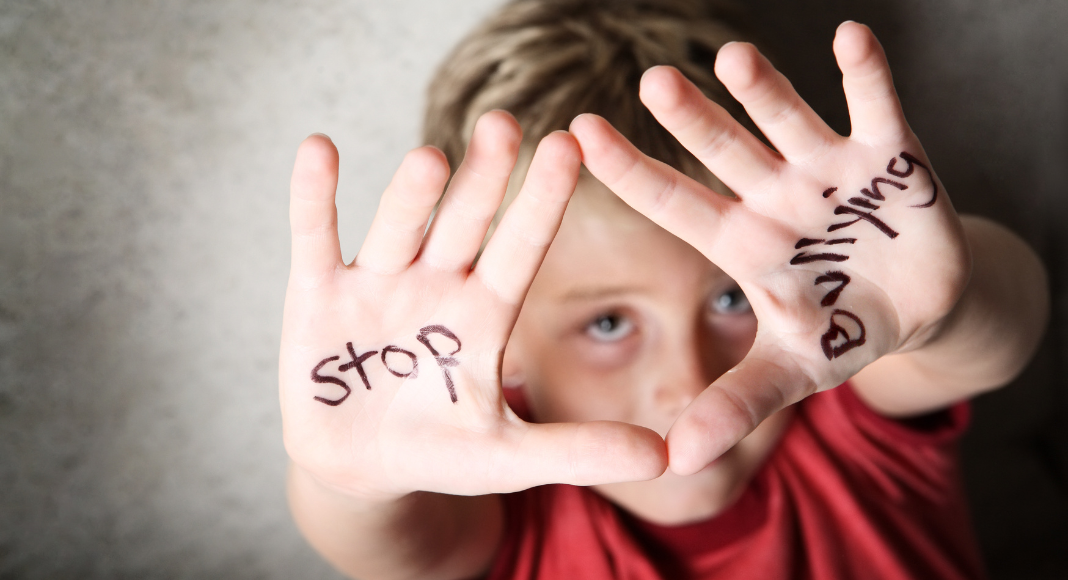 Being a parent, there is always a tremendously visceral gut-wrenching feeling when your child is not accepted by their peers, especially when that lack of acceptance evolves into bullying.
Being a parent, there is always a tremendously visceral gut-wrenching feeling when your child is not accepted by their peers, especially when that lack of acceptance evolves into bullying.
For me, it’s a mix of sadness that my child has to experience such negativity, consternation that they would have to navigate the unreliable pathways of social relationships, blind fury that anyone would try to hurt them, and an overwhelming sense of absolute helplessness.
Not because I won’t advocate for my child or protect my child. That I will do in spades. And not because I can’t find someone to listen to my concerns.
My anxiety is all about the fact that my child has become anyone’s target in the first place and how I cannot do a single thing to prevent that from ever happening again. The world can be an incredibly cruel place.
My daughter is in seven different activities over any given week, between her various singing lessons, dance classes, cheer, and CCD. As a result, she’s exposed to A LOT of kids, most of whom are kind, but invariably some who are anything but. She has been the subject of laughter when she dresses herself too fancily. She has been “iced out” by the “mean girls” at recess who pressure other girls into not talking to her. She has been asked why she doesn’t “talk like [her] mom” (about a slight speech impediment that she has).
Last year, one or more students made up a rumor that she had lice and should be avoided. Then, they spread an outrageous falsehood that I had called other parents and asked that they keep their children away from my supposedly lice-ridden daughter. This led to open taunts on the bus and anonymous calling out about “her lice.” She never had lice, and every word of this virulent rumor was a hurtful lie.
Even worse, this was during the FOURTH GRADE. Let’s allow that to sink in for a moment.
What drives children at such tender ages to be so incredibly mean? How do they even know to do these things? How can they so accurately zero in on the weaknesses of their intended targets? How does it get as far as the terrible stories that have peppered the news in recent years about children driven to suicide by the unrelenting pressures of the bullies they encounter?
There are so many theories that it can be hard to pinpoint just one, and as with many things, the answers are usually more complex than a single contributing factor. There is solid evidence that children, like the adults they will someday grow to be, don’t like the feeling of being on the periphery.
Children try to avoid emotional pain by blending in. And nothing feels safer to children than being “one of the pack.”
The sheer terror involved in being on the other side of bullying can sometimes be a powerful propellant towards making a child participate in taunting or socially rejecting behaviors. Children can be notoriously abhorrent of being ostracized for being different, and so by the same turn, do things that imply agreement to avoid being targeted. The problem with that is that eventually, everyone takes their turn being in the line of fire. Popularity is hard to count on, and the It-Girl (or Guy) is still all too subject to the whims of a fickle crowd. So what can be done?
There are usually many suggestions that cover everything from parent collaboration to school support, counseling, and bullying education programs in school settings. All of these things are important to explore and set in place. However, what I believe has the most profound effect in extinguishing bullying is when children support one another when bullies are confronted by students who signal en masse that the bullies’ tactics are unacceptable or anything but funny.
They can back down to the collective pressure that becomes a corrective action more powerful than anything an adult dictates. Their friends and peers are their world. This is developmentally appropriate and can go a long way towards dampening bullying if children respond together to make their feelings known.
But while children are most powerful when backing up one another, adult modeling of inclusiveness and acceptance is critical.
Our children are watching, and we have to be unequivocal and consistent when it comes to hammering home an intolerance for bullying behavior. And, let’s face it, our kids may not always talk to us about everything they should. But by keeping our eyes open and our feelers alert to behavioral or mood changes that signal that something is happening, we can attune ourselves to having the important discussions that need to happen when conscience falls into conflict.
When my daughter was bullied, I asked her school principal to investigate and check into things. She did. She identified the students (while publicly shielding their identities) and called their parents down to the school for an extremely strong conversation about the school’s zero-tolerance policy.
Teachers were alerted and did their part by making it clear in classroom discussions that bullying would not be tolerated. The vice principal boarded my daughter’s bus and talked sternly about appropriate conduct and how bullying would be addressed and dealt with, both in the present and future.
I was proudest of my daughter, who spoke to the students she suspected of instigating the rumor and stood up for herself respectfully with everyone. Her amazing, wonderful friends never stopped being close to her or playing with her, demonstrating through their actions that a rumor has no more power than what we give it.
In the end, it took a village, and rightfully so. But thank God for that village because bullying isn’t going to be extinguished by silence, the singular fist fight, or by pretending it doesn’t exist. It will take something much more active; it will take a brave community to acknowledge it and call it out for what it is.





















Love this article, May! You are so right about social support for the kids too. Coping with bullying is an important part of life in our society,. That is unfortunate – that our society accepts this behavior – but it is a reality.
Good job, Granddaughter!
Thank you grandma!!!! Yes, it is a trend that is all too common. Perhaps if we all stand together, we can face it down. It’ll never go away, but we can take some of the bullies’ power away!